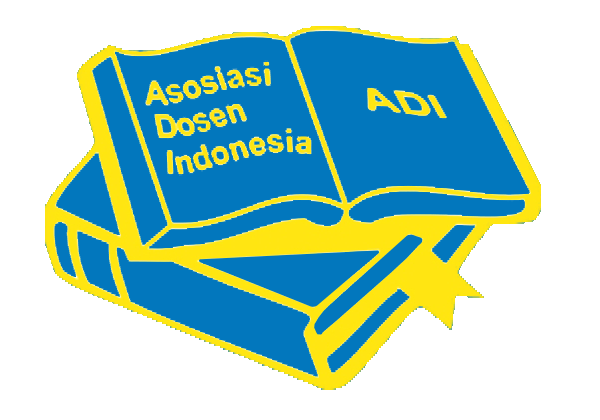MOOCs in Sports Learning : A Literature Review
Abstract
The purpose of this article is to present a review of published journal content from several research results focused on MOOC in sports learning. The research method used is literature review using the Google Scholar and Eric databases. With the keywords MOOC and Physical Activity, MOOC and Sport Education. The articles analyzed were published from 2017 to 2022, using the following inclusion criteria: international journals, articles of at least the last 6 years, the research sample is students. There are 10 articles reviewed from international journals. The results of the 10 articles reviewed show that MOOC improves classroom learning efficiency, creates an active and open learning atmosphere, creates a relaxed and lively teaching environment, and realizes diverse teaching styles not only increasing student enthusiasm and interest, but also providing learning creative. The conclusions of the 10 articles reviewed show that MOOC can improve the quality of learning in physical education.
References
Albelbisi, N. A. (2019). The Role of Quality Factors in Supporting Self-Regulated Learning (SRL) Skills in MOOC Environment. Education and Information Technologies, 24(2), 1681–1698. https://doi.org/10.1007/s10639-018-09855-2
Albelbisi, N. A. (2020). Development and Validation of the MOOC Success Scale (MOOC-SS). Education and Information Technologies, 25(5), 4535–4555. https://doi.org/10.1007/s10639-020-10186-4
Albelbisi, N. A., & Yusop, F. D. (2019). Factors Influencing Learners’ Self-Regulated Learning Skills in a Massive Open Online Course (MOOC) Environment. Turkish Online Journal of Distance Education, 20(3), 1–16. https://doi.org/10.17718/tojde.598191
Alhazzani, N. (2020). MOOC’s Impact on Higher Education. Social Sciences & Humanities Open, 2(1), 100030. https://doi.org/10.1016/j.ssaho.2020.100030
Barcena, E., Martin-monje, E., & Read, T. (2015). Potentiating the Human Dimension in Language MOOCs. Proceedings of the Third European MOOCs Stakeholder Summit, 1(7), 46–54.
Chen, C. (2018). Research on the Construction and Teaching Mode of College Sports MOOC Platform. 163(Meici), 1078–1081. https://doi.org/10.2991/meici-18.2018.216
Chen, J. A., Wu, D., Cheng, J. N., Fu, B., Zhang, L., & Lu, A. M. (2017). Application of MOOC Teaching in Sports Course Teaching Practice. Eurasia Journal of Mathematics, Science and Technology Education, 13(12), 8089–8097. https://doi.org/10.12973/ejmste/80770
Cisel, M., Mano, M., & Cachan, E. N. S. (2015). A Tale of Two MOOCs : Analyzing Long-Term Course Dynamics. Proceedings of the European MOOC Stakeholder Summit 2015, (August), 191–198.
Gameel, B. G., & Wilkins, K. G. (2019). When it Comes to MOOCs, Where You are From Makes a Difference. Computers and Education, 136, 49–60. https://doi.org/10.1016/j.compedu.2019.02.014
Goh, W. W., Wong, S. Y., & Ayub, E. (2018). Redesigning Learning for Greater Social Impact. Redesigning Learning for Greater Social Impact, 313–323. https://doi.org/10.1007/978-981-10-4223-2
Griffiths, M. A., Goodyear, V. A., & Armour, K. M. (2022). Massive open online courses (MOOCs) for professional development: meeting the needs and expectations of physical education teachers and youth sport coaches. Physical Education and Sport Pedagogy, 27(3), 276–290. https://doi.org/10.1080/17408989.2021.1874901
Guo, W., & Niu, Y. (2021). Interactive Teaching System of Basketball Action in College Sports Based on Online to Offline Mixed Teaching Mode. Mobile Information Systems, 2021. https://doi.org/10.1155/2021/9994050
Huang, R., Liu, D., Knyazeva, A., Chang, S., Zhang, T. W., Burgos, X., … Zhuang, M. (2020). Guidance on Open Educational Practices during School Closures: Utilizing OER under COVID-19 Pandemic in line with UNESCO OER Recommendation Rights and Permissions. Un, 1(1), 1–59. Retrieved from http://creativecommons.org/licenses/by-sa/3.0/igo/
Jansen, D., & Schuwer, R. (2015). Institutional MOOC Strategies in Europe: Status Report Based on a Mapping Survey Conducted in October - December 2014 (Vol. 2020).
León-Urrutia, M., Cobos, R., & Dickens, K. (2018). MOOCs and Their Influence on Higher Education Institutions: Perspectives from the insiders. Journal of New Approaches in Educational Research, 7(1), 40–45. https://doi.org/10.7821/naer.2018.1.252
Li, M. (2018). Design and Implementation of College Aerobics Network Course System in the Era of MOOC Network Teaching. Proceedings of the 6th International Conference on Social Science, Education and Humanities Research (SSEHR 2017), 185(Ssehr 2017), 111–114. https://doi.org/10.2991/ssehr-17.2018.27
Liu, F. (2021). Era of Big Data Is Based on the Study of Physical Education Teaching Mode in MOOC. Journal of Physics: Conference Series, 1744(3). https://doi.org/10.1088/1742-6596/1744/3/032008
Miller, H., Haller, P., Rytz, L., & Odersky, M. (2014). Functional Programming for all! Scaling a MOOC for Students and Professionals alike. 36th International Conference on Software Engineering, ICSE Companion 2014 - Proceedings, 256–263. https://doi.org/10.1145/2591062.2591161
Ming, F., Qi, H., & Qiansheng, J. (2020). Discussion on College PE Teaching Reform Based on MOOC. 2(3), 13–15. https://doi.org/10.25236/FSR.2020.020304
Moustakas, L., & Kalina, L. (2022). Learning Football for Good: The Development and Evaluation of the Football3 MOOC. Sustainability (Switzerland), 14(4), 1–15. https://doi.org/10.3390/su14042061
Palange, A. (2019). Exploring Factors that Influence the Impact of MOOC Learning on Participants Professional Practice. UCL Institute of Education, (January), 1–8.
Pi, Z. (2019). Study on the application of MOOC in the teaching practice of College Physical Education Course. 179(Ieesasm 2017), 20–23. https://doi.org/10.2991/ieesasm-17.2018.5
Plucker, J. A., & Makel, M. C. (2021). Replication is Important for Educational Psychology: Recent developments and key issues. Educational Psychologist, 56(2), 90–100. https://doi.org/10.1080/00461520.2021.1895796
Porter, D. (2015). A Policy Brief on MOOCs. (May), 20.
Qiansheng, J. (2020). Influence of MOOC on Physical Education in Modern Colleges in the New Era. 2(3), 16–18. https://doi.org/10.25236/FSR.2020.020305
Qiu, F. (2020). Research of Application of Physical Education Mooc in College Physical Education. 2(5), 36–38. https://doi.org/10.25236/FSR.2020.020512
Salloum, S. A., Qasim Mohammad Alhamad, A., Al-Emran, M., Abdel Monem, A., & Shaalan, K. (2019). Exploring Students’ Acceptance of E-learning Through the Development of a Comprehensive Technology Acceptance Model. IEEE Access, 7, 128445–128462. https://doi.org/10.1109/ACCESS.2019.2939467
Sheu, F. R., & Shih, M. (2017). Evaluating NTU’s OpenCourseWare Project with Google Analytics: User Characteristics, Course Preferences, and Usage Patterns. International Review of Research in Open and Distance Learning, 18(4), 100–122. https://doi.org/10.19173/irrodl.v18i4.3025
Sokolik, M. (2014). What Constitutes an Effective Language MOOC? Retrieved from http://anglofile.com/wp-content/uploads/2015/06/moocchapter.pdf
Stracke, C. M., Downes, S., Conole, G., Burgos, D., & Nascimbeni, F. (2019). Are MOOCs Open Educational Resources? A literature review on history, definitions and typologies of OER and MOOCs. Open Praxis, 11(4), 331. https://doi.org/10.5944/openpraxis.11.4.1010
Zhang, K., Bonk, C. J., Reeves, T. C., & Reynolds, T. H. (2019). MOOCs and Open Education in the Global South: Successes and challenges. MOOCs and Open Education in the Global South: Challenges, Successes, and Opportunities, 1–14. https://doi.org/10.4324/9780429398919-1
Copyright (c) 2023 Jp.jok (Jurnal Pendidikan Jasmani, Olahraga dan Kesehatan)

This work is licensed under a Creative Commons Attribution-ShareAlike 4.0 International License.
Authors retain copyright and grant the journal right of first publication with the work simultaneously licensed under a Creative Commons Attribution 4.0 International License that allows others to share the work with an acknowledgement of the work's authorship and initial publication in this journal.





.png)






